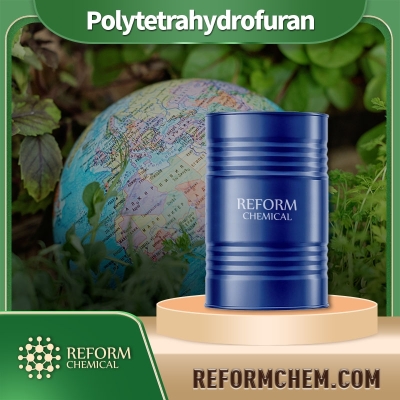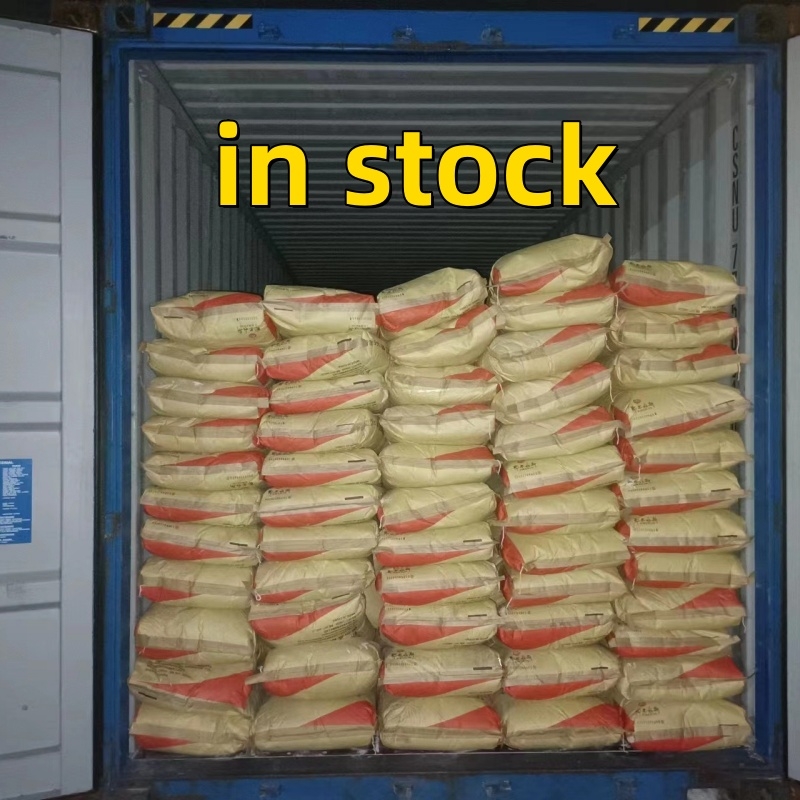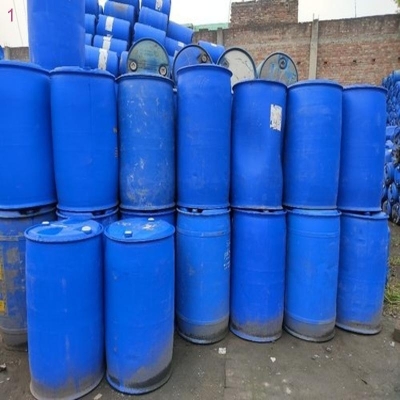-
Categories
-
Pharmaceutical Intermediates
-
Active Pharmaceutical Ingredients
-
Food Additives
- Industrial Coatings
- Agrochemicals
- Dyes and Pigments
- Surfactant
- Flavors and Fragrances
- Chemical Reagents
- Catalyst and Auxiliary
- Natural Products
- Inorganic Chemistry
-
Organic Chemistry
-
Biochemical Engineering
- Analytical Chemistry
-
Cosmetic Ingredient
- Water Treatment Chemical
-
Pharmaceutical Intermediates
Promotion
ECHEMI Mall
Wholesale
Weekly Price
Exhibition
News
-
Trade Service
According to the data released by the National Bureau of Statistics, in January ~ November 2015, the cumulative output of the national lithium-ion battery industry increased by -0.
57%
year-on-year.
Among them: the production completed in November increased by -3.
4%
year-on-year.
China's unprecedented hot lithium battery market has attracted the attention of international giants
.
According to the latest news from Japanese media, Panasonic, the world's number one supplier of power lithium batteries, will invest in building a factory
in Dalian, China.
Coupled with the completion of the factories of global lithium battery giants LG Chem and Samsung SDI in China, the unprecedented hot lithium battery market in China will form a pattern
of "three countries killing" in China, Japan and South Korea.
Industry insiders analyzed that Japanese and South Korean lithium battery giants have entered China, on the one hand, will form a huge competitive pressure on domestic lithium battery manufacturers, on the other hand, it will also have a huge driving effect
on the domestic lithium battery industry chain and even the new energy vehicle industry chain.
As the global new energy vehicles shifted from the United States to China, Panasonic began to target the rapidly rising Chinese market
.
According to data from the Ministry of Industry and Information Technology, from January to November 2015, the cumulative production of new energy vehicles was 279,200 units, a year-on-year increase of four times
.
Among them, the production of pure electric passenger vehicles was 117,200 units, a year-on-year increase of 3.
5 times, the production of plug-in hybrid passenger vehicles was 53,000 units, a year-on-year increase of 3 times, the production of pure electric commercial vehicles was 90,100 units, a year-on-year increase of 11 times, and the production of plug-in hybrid commercial vehicles was 18,900 units, a year-on-year increase of 90%.
Xu Yanhua, deputy secretary-general of the China Association of Automobile Manufacturers, said that the development of China's new energy vehicle industry is gratifying, and there is little suspense
in achieving annual new energy vehicle sales this year surpassing the United States to become the world's largest new energy vehicle market.
With the explosive growth of the new energy vehicle market, power lithium batteries are in short supply
.
Since the beginning of this year, the lithium battery industry chain has become the most intensive field of fundraising and investment, and listed companies such as BYD, Shanshan Co.
, Ltd.
, Del Home, Dadongnan, and Yinghe Technology have increased their investment in the lithium battery industry chain
.
Volkswagen does not seem to be willing to purchase power batteries from local Chinese companies, and its preferred suppliers are Samsung and LG.
Heizmann said frankly that no Chinese battery manufacturer can meet the public's procurement standards
.
Crazy lithium batteries chase crazy new energy vehicles and are loved
by the market in every way.
However, behind the fanaticism, there are also people in the industry who are beginning to worry that such intensive and crazy investment may make the lithium battery industry repeat the mistake of photovoltaic overcapacity in the past, and may also induce the price of
raw materials to rise.
In addition, technological backwardness is also a hard injury
that domestic lithium battery companies have to face.
Compared with their counterparts in Japan and South Korea, the technical strength of battery production of domestic enterprises is still far behind, especially in battery
consistency.
Overcapacity, backward technology and shortage of raw materials are the triple concerns
of industry insiders for investment in lithium battery projects.
According to data released by research institute EVTank, since the beginning of this year, the company intends to put into production lithium power battery production capacity of about 59.
6GWh, and it is expected that by 2018, the demand for lithium batteries will be about
42.
4GWh.
Many practitioners are worried that once lithium batteries overheat, it is not ruled out to repeat the overcapacity of the photovoltaic industry in the past
.
Since lithium battery projects generally require a construction period of one year or even several years, lithium battery projects that have been intensively launched recently may have overcapacity after the completion of production in the future
.
On the one hand, the large-scale intensive production of lithium batteries, especially the production of low-end lithium batteries, has overcapacity, and the entire lithium battery industry may face overcapacity in the future; On the other hand, with the improvement of process efficiency in the future, the existing lithium battery production capacity will be further increased, which will also stimulate the situation
of oversupply.
The second worry lies in the backwardness
of domestic lithium battery technology.
Minister of Science and Technology Wan Gang pointed out at last year's Tianjin Forum that there is a clear gap between new energy vehicles in China and foreign countries, and the most prominent is that there is still great room
for improvement in system integration and production consistency of large-scale battery technology.
Heizmann, president and CEO of Volkswagen Group (China), once said that in the next 4~5 years, Volkswagen will successively produce 15 new energy vehicles
in China.
Unfortunately, Volkswagen does not seem to be willing to purchase power batteries from local Chinese companies, and its preferred suppliers are Samsung and LG.
Heizmann said frankly that no Chinese battery manufacturer can meet the public's procurement standards
.
The cycle life of Samsung's SDI ternary system can be more than 5,000 times, while the best battery in China can only do 3,000 times
.
At the same time, because Japanese and Korean companies adopt highly automated production lines, the consistency and stability of products are far above
those of domestic companies.
In the face of technical hard injuries, EVE is making a breakthrough
in battery consistency.
"The company's automatic lithium battery production line is designed and built by the core management team of the former Japanese Sanyo Battery in accordance with international first-class standards, and is expected to become the most advanced lithium battery production line in China after completion, strengthening the strength
of domestic lithium batteries.
" In addition, domestic lithium battery manufacturers are also facing the risk
of rising raw material prices.
Due to the sharp acceleration of downstream demand, raw materials such as lithium carbonate, ferrous oxalate and iron phosphate in the upstream of the industry have begun to have serious shortages, which restricts the rapid development of
the industry.
Statistics from high-tech production and research show that in 2015, the cathode material lithium iron phosphate used in Chinese mainland power batteries was nearly 30,000 tons, and the demand for 2016 was not less than 50,000 tons, while the main raw material of lithium iron phosphate was 1.
2 times the demand, and then the market demand in 2016 was 60,000 tons
.
Industry insiders revealed that at present, the main domestic suppliers of iron phosphate include more than 10 manufacturers such as Hubei Wanrun, Cangzhou Ruixing, Tangshan Linke, Hefei Yalong, etc.
, and the cumulative production capacity of all manufacturers is only 20,000 tons per year, which is nearly three times
different from the expected demand.
The price of lithium hexafluorophosphate, which is regarded as the "soul of lithium battery electrolyte", has risen from 85,000 yuan / ton at the beginning of 2015 to about 140,000 yuan / ton at present, and the industry expects that it may exceed 200,000 yuan / ton
next year.
According to the data released by the National Bureau of Statistics, in January ~ November 2015, the cumulative output of the national lithium-ion battery industry increased by -0.
57%
year-on-year.
Among them: the production completed in November increased by -3.
4%
year-on-year.
China's unprecedented hot lithium battery market has attracted the attention of international giants
.
According to the latest news from Japanese media, Panasonic, the world's number one supplier of power lithium batteries, will invest in building a factory
in Dalian, China.
Coupled with the completion of the factories of global lithium battery giants LG Chem and Samsung SDI in China, the unprecedented hot lithium battery market in China will form a pattern
of "three countries killing" in China, Japan and South Korea.
Industry insiders analyzed that Japanese and South Korean lithium battery giants have entered China, on the one hand, will form a huge competitive pressure on domestic lithium battery manufacturers, on the other hand, it will also have a huge driving effect
on the domestic lithium battery industry chain and even the new energy vehicle industry chain.
As the global new energy vehicles shifted from the United States to China, Panasonic began to target the rapidly rising Chinese market
.
According to data from the Ministry of Industry and Information Technology, from January to November 2015, the cumulative production of new energy vehicles was 279,200 units, a year-on-year increase of four times
.
Among them, the production of pure electric passenger vehicles was 117,200 units, a year-on-year increase of 3.
5 times, the production of plug-in hybrid passenger vehicles was 53,000 units, a year-on-year increase of 3 times, the production of pure electric commercial vehicles was 90,100 units, a year-on-year increase of 11 times, and the production of plug-in hybrid commercial vehicles was 18,900 units, a year-on-year increase of 90%.
Xu Yanhua, deputy secretary-general of the China Association of Automobile Manufacturers, said that the development of China's new energy vehicle industry is gratifying, and there is little suspense
in achieving annual new energy vehicle sales this year surpassing the United States to become the world's largest new energy vehicle market.
With the explosive growth of the new energy vehicle market, power lithium batteries are in short supply
.
Since the beginning of this year, the lithium battery industry chain has become the most intensive field of fundraising and investment, and listed companies such as BYD, Shanshan Co.
, Ltd.
, Del Home, Dadongnan, and Yinghe Technology have increased their investment in the lithium battery industry chain
.
Volkswagen does not seem to be willing to purchase power batteries from local Chinese companies, and its preferred suppliers are Samsung and LG.
Heizmann said frankly that no Chinese battery manufacturer can meet the public's procurement standards
.
Crazy lithium batteries chase crazy new energy vehicles and are loved
by the market in every way.
However, behind the fanaticism, there are also people in the industry who are beginning to worry that such intensive and crazy investment may make the lithium battery industry repeat the mistake of photovoltaic overcapacity in the past, and may also induce the price of
raw materials to rise.
In addition, technological backwardness is also a hard injury
that domestic lithium battery companies have to face.
Compared with their counterparts in Japan and South Korea, the technical strength of battery production of domestic enterprises is still far behind, especially in battery
consistency.
Overcapacity, backward technology and shortage of raw materials are the triple concerns
of industry insiders for investment in lithium battery projects.
According to data released by research institute EVTank, since the beginning of this year, the company intends to put into production lithium power battery production capacity of about 59.
6GWh, and it is expected that by 2018, the demand for lithium batteries will be about
42.
4GWh.
Many practitioners are worried that once lithium batteries overheat, it is not ruled out to repeat the overcapacity of the photovoltaic industry in the past
.
Since lithium battery projects generally require a construction period of one year or even several years, lithium battery projects that have been intensively launched recently may have overcapacity after the completion of production in the future
.
On the one hand, the large-scale intensive production of lithium batteries, especially the production of low-end lithium batteries, has overcapacity, and the entire lithium battery industry may face overcapacity in the future; On the other hand, with the improvement of process efficiency in the future, the existing lithium battery production capacity will be further increased, which will also stimulate the situation
of oversupply.
The second worry lies in the backwardness
of domestic lithium battery technology.
Minister of Science and Technology Wan Gang pointed out at last year's Tianjin Forum that there is a clear gap between new energy vehicles in China and foreign countries, and the most prominent is that there is still great room
for improvement in system integration and production consistency of large-scale battery technology.
Heizmann, president and CEO of Volkswagen Group (China), once said that in the next 4~5 years, Volkswagen will successively produce 15 new energy vehicles
in China.
Unfortunately, Volkswagen does not seem to be willing to purchase power batteries from local Chinese companies, and its preferred suppliers are Samsung and LG.
Heizmann said frankly that no Chinese battery manufacturer can meet the public's procurement standards
.
The cycle life of Samsung's SDI ternary system can be more than 5,000 times, while the best battery in China can only do 3,000 times
.
At the same time, because Japanese and Korean companies adopt highly automated production lines, the consistency and stability of products are far above
those of domestic companies.
In the face of technical hard injuries, EVE is making a breakthrough
in battery consistency.
"The company's automatic lithium battery production line is designed and built by the core management team of the former Japanese Sanyo Battery in accordance with international first-class standards, and is expected to become the most advanced lithium battery production line in China after completion, strengthening the strength
of domestic lithium batteries.
" In addition, domestic lithium battery manufacturers are also facing the risk
of rising raw material prices.
Due to the sharp acceleration of downstream demand, raw materials such as lithium carbonate, ferrous oxalate and iron phosphate in the upstream of the industry have begun to have serious shortages, which restricts the rapid development of
the industry.
Statistics from high-tech production and research show that in 2015, the cathode material lithium iron phosphate used in Chinese mainland power batteries was nearly 30,000 tons, and the demand for 2016 was not less than 50,000 tons, while the main raw material of lithium iron phosphate was 1.
2 times the demand, and then the market demand in 2016 was 60,000 tons
.
Industry insiders revealed that at present, the main domestic suppliers of iron phosphate include more than 10 manufacturers such as Hubei Wanrun, Cangzhou Ruixing, Tangshan Linke, Hefei Yalong, etc.
, and the cumulative production capacity of all manufacturers is only 20,000 tons per year, which is nearly three times
different from the expected demand.
The price of lithium hexafluorophosphate, which is regarded as the "soul of lithium battery electrolyte", has risen from 85,000 yuan / ton at the beginning of 2015 to about 140,000 yuan / ton at present, and the industry expects that it may exceed 200,000 yuan / ton
next year.







